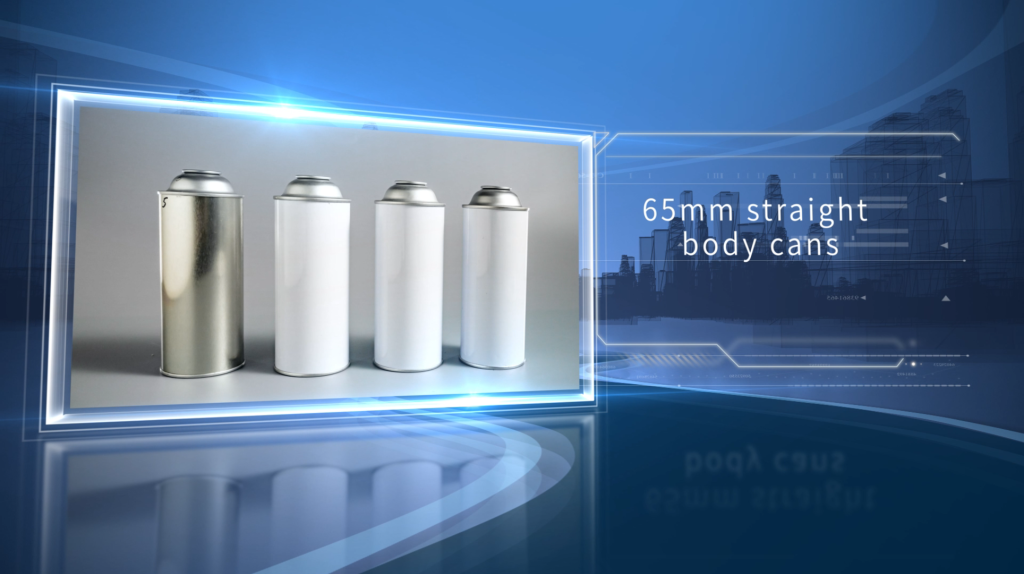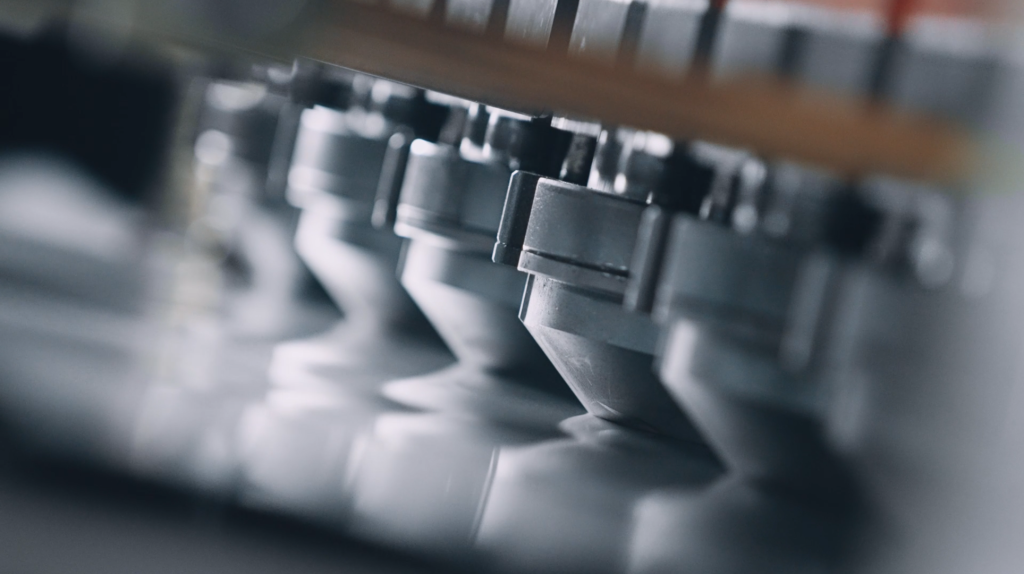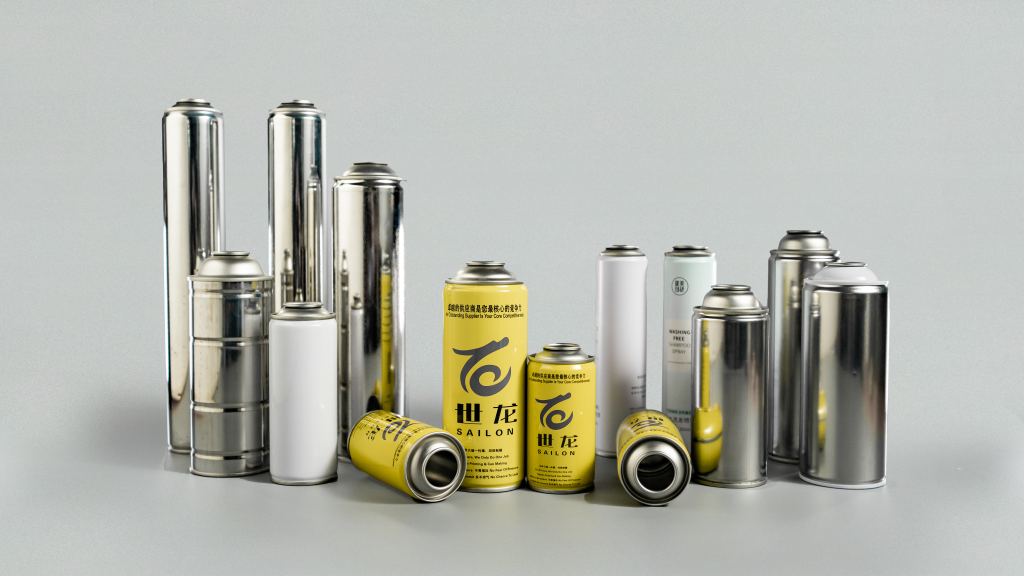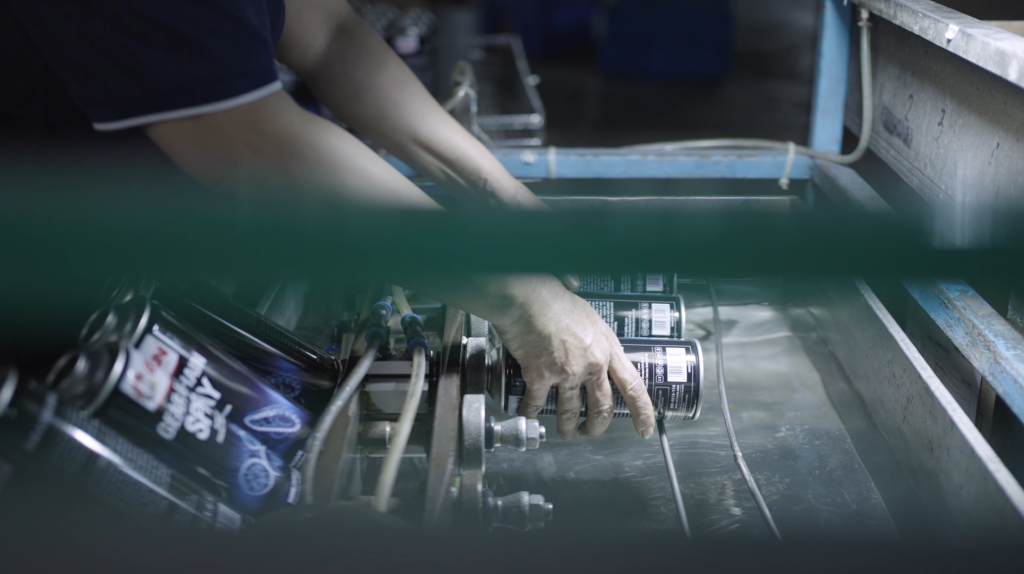
a daily chemical company customizes a batch of tinplate aerosol cans from your company for filling moisturizing sprays. However, during transportation, some of the aerosol cans show obvious dents and deformations, which not only lead to customer returns but also damage the company’s reputation. The root cause of this problem is likely in the quality control link of the production line. As a professional custom tinplate aerosol can enterprise, how to eliminate can deformation from the entire production process has become the key to enhancing product competitiveness rankings.
1. Raw Materials: The “Golden Standard” for Tinplate Selection
Tinplate, as the core raw material of aerosol cans, directly determines the anti-deformation ability of the cans. Many customers will ask: “Since they are all tinplates, why are some cans more prone to deformation?” Actually, the answer lies in the selection and inspection of raw materials.
1.1 Key Parameters of Tinplate Material
When selecting tinplate, the following indicators should be focused on, and the specific parameter requirements are shown in the table below:
| Parameter Name | Standard Requirement | Role in Preventing Deformation |
| Thickness Deviation | ≤±0.02mm | Ensure uniform stress on all parts of the can and avoid local weakness |
| Tensile Strength | ≥500MPa | Enhance the can’s ability to resist external extrusion |
| Surface Coating Adhesion | No peeling or scratches | Prevent the can from being easily deformed by external forces due to coating damage |
| Toughness | No cracks when bent 180° | Reduce deformation caused by hard material during forming |
1.2 “Three Checkpoints” for Raw Material Inspection
- Appearance Inspection: Use strong light to check whether there are pits, rust, scratches and other defects on the tinplate surface. Defective products must be eliminated immediately, as these defects will become stress concentration points during forming and increase the risk of deformation.
- Dimension Detection: Use high-precision calipers to sample and test the thickness and width of each batch of tinplate to ensure they meet the size requirements of custom cans.
- Performance Test: Randomly select samples for tensile and bending tests to verify whether the mechanical properties of the material meet the standards.

2. Production Process: Refined Control is the Core of Deformation Prevention
During the production process, customers often ask: “Do process parameters need to be adjusted when customizing aerosol cans of different specifications?” The answer is yes. The refined control of stamping forming and welding processes is the core link to prevent can deformation.
2.1 Stamping Forming: “Dual Cooperation” of Mold and Parameters
For tinplate aerosol cans of different capacities, the radian and size of the mold need to be redesigned. For example, for small-capacity cans of 50ml, the fillet radius of the mold should be smaller to ensure that the can is not prone to wrinkles after forming; for large-capacity cans of 200ml, the support structure of the mold needs to be increased to prevent deformation of the can sidewall during stamping.
- Parameter Setting Skills: Stamping pressure, speed and stroke need to be adjusted according to the thickness of the tinplate. Taking tinplate with a thickness of 0.2mm as an example, the stamping pressure is recommended to be set at 8-10MPa, the speed at 15-20 times per minute, and the stroke error should not exceed 0.1mm. This can not only ensure the forming effect but also avoid excessive stamping leading to deformation.
2.2 Welding and Annealing: The “Key Step” to Eliminate Stress
- Welding Process: When welding the can body and can bottom, high-frequency resistance welding is used. The welding current is controlled at 80-100A, and the welding speed is maintained at 2-3m/min. If the current is too large, the welding part will be overheated and deformed; if the current is too small, the welding will be insecure, and cracks will easily occur in subsequent use.
- Annealing Treatment: The formed cans need to be annealed. The temperature is set at 300-350℃, the heat preservation time is 15-20 minutes, and then they are cooled naturally. This step can effectively eliminate the internal stress generated during the stamping process, make the tinplate material more stable, and reduce the possibility of deformation in the later stage.
3. Equipment Maintenance: Automation Upgrade Improves Stability
Some customers are worried: “Will the quality of the cans be affected if the production line equipment is used for a long time?” In fact, regular maintenance and automation upgrades can effectively solve this problem.
3.1 “Daily Checklist” for Equipment Maintenance
- Daily Inspection: Before starting the machine, check the hydraulic system of the stamping machine to ensure no oil leakage and sufficient lubrication of transmission parts.
- Weekly Calibration: Use standard parts to calibrate the dimensional accuracy of the stamping machine, with the error controlled within 0.05mm.
- Monthly Maintenance: Replace the electrode head of the welding machine and clean the impurities inside the equipment to prevent parameter deviation caused by component wear.
3.2 Advantages of Automated Equipment
Compared with traditional manual operation, automated stamping machines and welding machines have obvious advantages: they can monitor process parameters in real time. Once abnormal pressure or speed deviation occurs, they will automatically shut down and alarm. For example, when the stamping pressure exceeds 10% of the set value, the equipment stops running immediately to avoid excessive deformation of the can and reduce quality problems caused by human operation errors.

4. Quality Inspection: Full-Process Monitoring Eliminates Defective Products
“How to ensure that every batch of customized aerosol cans is free from deformation?” This is the most concerned question of customers. Full-process quality inspection is the last line of defense to eliminate defective products.
4.1 Online Inspection: Real-Time Monitoring of Production Process
Install a visual inspection system in the production line. For every 10 cans produced, the system will automatically take photos of the appearance and size of the cans and compare them with standard parameters. If it is found that the diameter deviation of the can exceeds 0.2mm or there is a dent, an alarm will be issued immediately, and the operator can adjust the process parameters in time.
4.2 Sampling Inspection: Comprehensive Verification of Product Performance
Sampling inspection is carried out at a rate of 1%, and the inspection items include:
- Compression Test: Place the can in a pressure testing machine, apply a pressure of 0.8MPa, and keep it for 1 minute. It is qualified if there is no deformation.
- Sealing Test: Immerse the can in water, inject compressed air of 0.5MPa, and observe whether there are bubbles. If there are no bubbles, the sealing is good.
Conclusion
Preventing the deformation of tinplate aerosol cans requires comprehensive control from four dimensions: raw materials, production processes, equipment maintenance and quality inspection. For customized production, adjusting process parameters and selecting appropriate tinplate materials according to customer needs are the keys to improving product quality. Only by doing every detail well can we produce anti-deformation and high-quality aerosol cans, which can not only win customer trust but also gain a higher ranking in Google searches with high-quality content and attract more potential customers.


